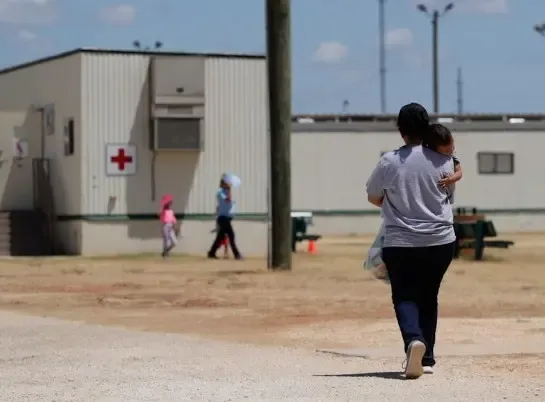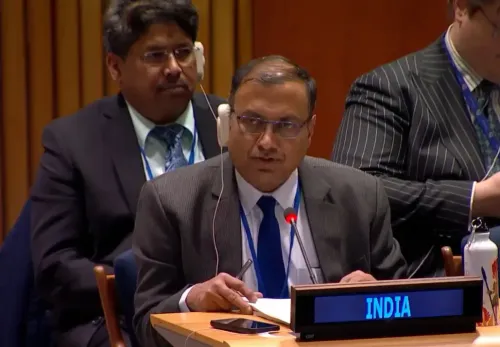Trump Administration Reopens Dilley Detention Center for Migrant Families

Synopsis
Key Takeaways
- Reopening of family detention centers
- Capacity for 2,400 families
- Contract until March 2030
- Opposition from immigration advocates
- Economic impact on Dilley
Washington, March 7 (NationPress) The Trump administration has made the decision to reactivate the South Texas Family Residential Center located in Dilley, Texas, once again detaining migrant families who are facing deportation, as reported by CoreCivic, the private prison contractor managing the facility.
CoreCivic announced on Wednesday that it has come to an agreement with US Immigration and Customs Enforcement (ICE) to reopen the center, which has the capacity to accommodate up to 2,400 parents and children, according to the Washington Post.
"ICE's plans to resume operations at this facility, notorious for neglect and abuse towards families and children, signify the beginning of yet another grim chapter in this nation's approach to immigrants," stated Eunice Cho, a senior attorney at the National Prison Project of the American Civil Liberties Union (ACLU).
The contract is set to last until March 2030.
This decision represents a departure from President Joe Biden's 2021 policy aimed at ending family detention.
Advocates for immigration reform strongly criticize this practice, deeming it inhumane.
Current 'border czar' Tom Homan confirmed to the New York Times on Wednesday that the Trump administration is contemplating the revival of family detention.
"We require family residential centers," he remarked, indicating that the administration is also considering reopening facilities in Dilley and Karnes City, Texas.
"It's an option. We have numerous options on the table."
The reopening of the Dilley facility is consistent with Trump's broader immigration strategy. He has vowed to execute "the largest deportation operation in American history" and has urged Congress to allocate additional resources for expanded detention.
Despite these aspirations, ICE has limited detention capacity, making large-scale deportations challenging without increased funding.
CoreCivic has revised its agreement with ICE and has signed a new lease with the facility's owner, Target Hospitality Corporation.
The company is also adding nearly 800 new detention beds across various states, indicating further growth in the private detention sector.
The reopening of the facility will have economic repercussions for Dilley, a small city with fewer than 5,000 residents, where the center previously provided hundreds of job opportunities.
Proponents argue that family detention serves as a deterrent against illegal border crossings.
However, critics point out its high costs and ineffectiveness, mentioning a 2015 court ruling that restricts how long children can be held in unlicensed facilities, resulting in many families being released instead of deported.
Trump officials assert that the objective is to deport families together rather than allow them to remain in the US.










